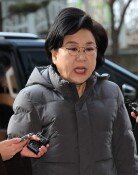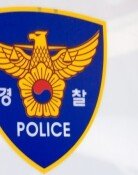Performance of Corporate Korea in 2007
Performance of Corporate Korea in 2007
Posted December. 13, 2007 03:07,
Under the banner of global management, major Korean corporations got off to a cracking start this year. Some of them, however, experienced hard times because of various negative factors including the Samsung slush fund scandal.
In terms of performance, a vast majority of them saw their performance improve on the back of upturn in the global economy, due largely to China and other emerging economies. Hyundai Heavy Industries, in particular, is said to have join the ranks of global companies.
Many industry observers say, through proactive overseas M&A, corporate Korea is growing out of defensive management, which has been a characteristic of Korean companies since the 1997 financial crisis.
Mid-sized companies made strides toward going global -
The best performance of the year came from traditional smoke stack industries such as steel, shipbuilding, and machinery.
At the end of November 2007, Hyundai Heavy Industries received a record $24.6 billion in orders thanks to booming Chinese economy. On the strength of the record order, Hyundai Heavy Industries ranked first in the operating income increase among 10 major Korean corporations from January to September this year. As of December 10, the companys stock prices rose by 217%, making them second highest among top 10 companies in Korea.
POSCO saw encouraging signs such as good performance and high stock prices. In addition, on December 10, POSCO Chairman Lee Ku-taek was elected as chairman of the International Iron and Steel Institute. The companys second quarter performance was better than that of Samsung Electronics for the first time since the fourth quarter of 2004.
The Doosan Group achieved the largest overseas M&A in company history thanks to the boom in the global machinery market. Doosan Infracore took over three business divisions of Ingersoll-Rand, including Bobcat in a deal worth $4.9 billion. Doosan Infracore declared it would become one of top three construction equipment companies in the world by 2012.
Outside the top ten businesses, the Eugene and STX Groups performed well by pursuing M&A. STX acquired the worlds largest cruise maker, Norway-based Aker Yards. The Eugene Group took over six companies this year alone, including Seoul Securities, Logen, and Hanjin Overseas Express. Recently, Eugene has prepared to become a retailer after being named as a preferred candidate in Hi-mart negotiations.
Successful return and improvements of corporate governance -
Many say that Hyundai and Kia Motor Group, which experienced difficulties due to the arrest of its chairman last year, has a new lease on life this year.
Hyundai Motor Chairman Chung Mong-koo has played a big part in the successful bid for the 2012 Yeosu Expo, setting the stage for global management. Kia completed an auto plant in Slovakia and its second plant Plant 2 in China. Hyundai broke ground with a new plant in the Czech Republic and also extended an existing plant in Turkey.
The LG Group has recovered from last years worst-ever performance. From January to September this year, LG Electronics, LG Philips LCD, and LG Chemical saw their operating revenue increase 17.7 times year-on-year.
Because of high oil prices, the SK Group and the GS Group saw their major subsidiaries achieve record performances. In this past July, SK Group adopted a holding company structure to enhance transparency and corporate governance. This allows the new holding company to concentrate on business investments, while it allows the operating unit to focus on its core businesses.
The Kumho Asiana Group expanded by way of its Daewoo Construction acquisition last year. The Groups stock price has also risen sharply due to enhanced financial results and its switch to holding company structure.
Some Businesses still experiencing hard times in 2007, a year to forget -
The Samsung Group, which is celebrating Chairman Lee Kun-hees 20-year anniversary at helm, is currently in a bind. Samsung Electronics and Samsung SDI have both under-performed and the Group has been haunted by a series of unsavory events.
A senior Samsung official confided, In spring, our financial results worsened, and in summer, there was a power outage in our semi-conductor plant. In the fall, there was Lawyer Kim Yeong-cheols whistle-blowing, and in winter, the oil spill in the West Sea. As for the slush fund case, we have a tough year ahead of us if special prosecutors are appointed.
The Hanwha Group was off to a good start earlier this year with its global strategy. However, the Group hit a major snag when its chairman was indicted.
Lee Seung-cheol, managing director of the Federation of Korean Industries, said, This year has been the most eventful ever in business circles. In terms of management style, corporate Korea has opted for an adventurous approach, instead of its traditional safety.







